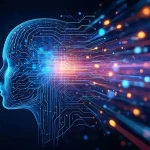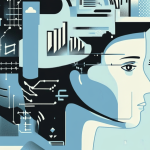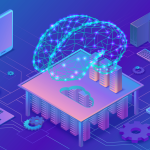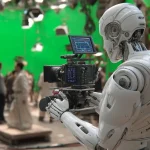Introduction
Democracy is evolving in the digital age, driven by technology that reshapes how citizens engage with politics and how leaders communicate with the public. Artificial intelligence, social media, and celebrity influence are redefining participation, making political dialogue more accessible—but also more complex.
This transformation has given rise to a new form of digital democracy, where political movements are built through viral campaigns and influencers play roles once reserved for journalists and policymakers. As politics merges with entertainment and technology, the global balance of influence continues to shift.
Social Media and the New Political Conversation
Social media platforms have become the most powerful tools for shaping political discourse. Politicians use them to reach voters directly, bypassing traditional media filters. Hashtags, livestreams, and viral videos can now determine election outcomes.
However, the same platforms that empower citizens also polarize societies. Echo chambers and algorithmic feeds reinforce existing beliefs, making it harder for diverse perspectives to coexist in the public space. The result is a digital democracy both more inclusive and more divided.
Artificial Intelligence and Political Strategy
AI has become an essential element of modern governance and campaigning. Data analytics allow political strategists to predict voter behavior, tailor messages, and manage resources more effectively. This precision has made political communication smarter—but also more invasive.
The ethical implications are immense. When algorithms decide which messages reach which voters, democracy risks becoming a product of data manipulation rather than open debate. Ensuring transparency in AI-driven political tools is now critical to maintaining electoral integrity.
Celebrity Activism and Political Awareness
Celebrities have emerged as unexpected leaders in political awareness movements. Their massive followings and digital reach allow them to influence global audiences in ways traditional politicians often cannot. Figures like Taylor Swift, Leonardo DiCaprio, and Malala Yousafzai use their platforms to advocate for voting rights, climate action, and social justice.
This blending of fame and activism bridges the gap between culture and politics, especially among younger generations. Yet it also raises questions about expertise, accountability, and the authenticity of public advocacy when entertainment and activism collide.
Technology Giants and Digital Governance
Tech corporations have become central players in shaping democratic systems. Platforms like Meta, X, and TikTok act as gatekeepers of public discourse, while AI-driven moderation tools determine what content is visible or restricted.
The influence of these companies extends beyond national borders, giving them unprecedented political power. As global regulators push for digital accountability, debates over censorship, privacy, and freedom of expression continue to intensify.
The Globalization of Digital Movements
Technology has made political movements global. Protests and advocacy campaigns that begin in one country can spark worldwide solidarity within hours. From #MeToo to climate strikes, digital activism demonstrates how connectivity empowers citizens across borders.
However, this rapid globalization also invites misinformation and external interference. The same platforms that unite people for justice can be weaponized to sow division, turning global connectivity into a double-edged sword.
Ethical Challenges of Digital Participation
As more of public life moves online, the definition of civic engagement must be reconsidered. Voting apps, blockchain governance, and digital identification promise efficiency but also risk surveillance and exclusion.
Balancing innovation with civil liberties will determine the success of digital democracy. Governments must ensure that technology enhances, rather than undermines, the fundamental principles of freedom, equality, and privacy.
FAQs
How is AI used in modern politics?
AI analyzes voter data, personalizes campaign messages, and predicts public sentiment, making political strategies more targeted and effective.
Why are celebrities important in political movements?
Their visibility and influence help amplify causes, mobilize support, and make complex political issues relatable to mass audiences.
Do social media platforms affect democracy?
Yes, they democratize communication but also enable misinformation and polarization through algorithmic bias.
How do tech companies influence political discourse?
By controlling online visibility and engagement metrics, they effectively decide which narratives gain prominence.
What are the ethical concerns with digital democracy?
Data privacy, algorithmic manipulation, and unequal access threaten fairness and transparency in online political systems.
Conclusion
Digital democracy represents the fusion of technology, politics, and culture in the twenty-first century. While it offers unprecedented access to information and participation, it also exposes societies to manipulation and ethical dilemmas that demand urgent attention.
The challenge ahead lies in balancing innovation with integrity. If guided by transparency, accountability, and inclusivity, digital democracy can become a true reflection of global citizenship rather than a tool of digital control.








